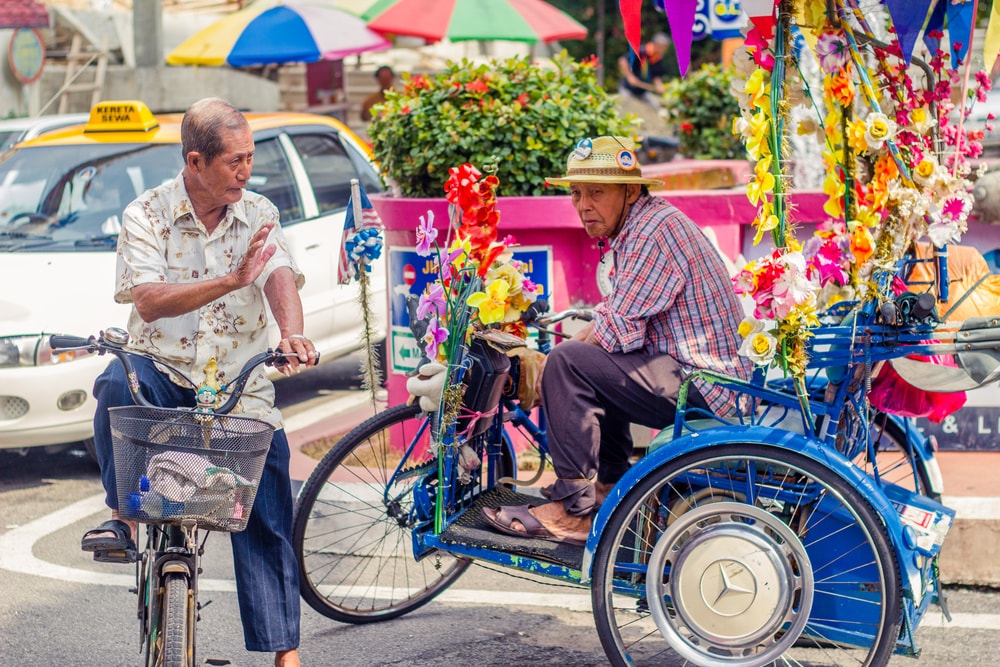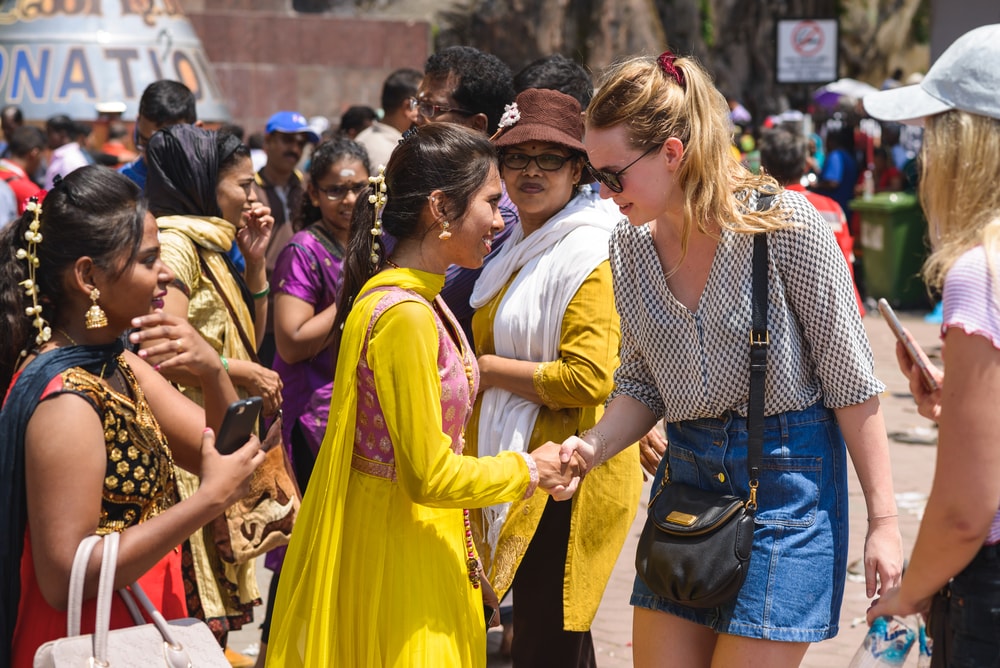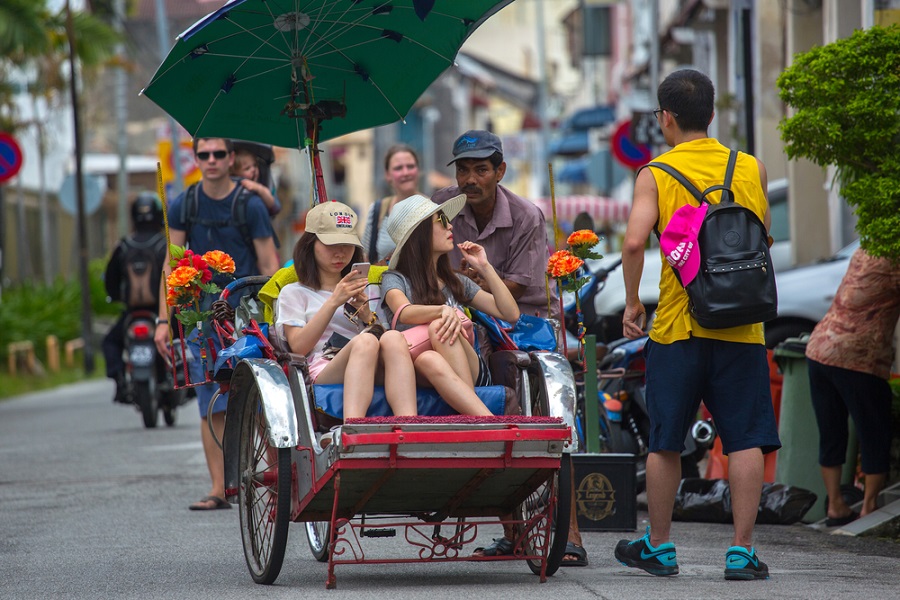In Malaysia, we like our nicknames. If you have a name that is more than two syllables long, we Malaysians will find a way to shorten it or give you a cute (sometimes annoying) nickname that will stick to you like superglue. People in Malaysia also like to refer to people using words like brother, friend, and boss. The widespread practice of using these terms instead of names when addressing each other in Malaysia originally stems from a place of showing respect, more than anything else.
After as little as a day in Malaysia, you will have noticed that many people refer to each other as cik or bang or kak. These are all Malay words for Mr or Ms / Mrs (cik), big brother (bang) and big sister (kak). In Malaysia, everyone is family. In Part 6 of our English to BM phrasebook series, we covered these basic pronouns and the honorary titles commonly used in Malaysia, as well as when and how best to use them.
This time around, we’re focusing on the other nicknames and terms of endearment you’ll come across in Malaysia.
1. Macha
One of the common terms used among friends is macha, not to be confused with the Japanese word for green tea. Macha is the Tamil word for brother-in-law, but the usage has stretched beyond that to mean brother and friend. Malaysians typically call their male friends macha all the time even if they aren’t married to their friend’s brother or sister. Macha is also often shortened to Cha – because we also like to shorten already-short nicknames.
The history and evolution of the word is difficult to track, but I found one blog that attempted to explain the progression of macha (keep in mind that this is just one opinion and is by no means a factual account)…
According to ragedindian.com, the word was popularised by the Indians, mostly ethnic Tamils, who came to Malaysia by boat to work as labourers. The journey by sea was a treacherous one and many of the travellers started to bond in the hard conditions and began to look after each other. By the end of the journey, they were no longer strangers.
This was when the word macha started to evolve. In India, it’s believed that your brother-in-law will always stand by you when you have a problem, they will always look out for you. So the Indians travelling to Malaysia started calling each other macha. When they arrived here, the word spread like wildfire, becoming what it is today – a term of endearment and an affirmation of the bond between friends.
Nowadays, friends who call each other macha or cha are basically saying, “I’ll be there for you if you need me.” Though the term is reserved for men, some people have begun using it for their female friends, as well. For something a little more casual and all-encompassing, we always have bro or dude.
2. Tauke / Boss
The word tauke (pronounced tau-kay) is Hokkien for boss, so this translation is applicable for both words. When you meet an older man, you can call him boss or tauke (best used for older Chinese men) as a sign of respect.
For the word ‘boss,’ you can use it on basically any person you meet on the street, from the cashier at a store, waiter, taxi driver, newspaper vendor – anyone is a boss. It might seen a little weird at first, but you’ll notice that most of these nicknames are just to maintain a culture of respect.
3. Leng Chai/ Leng Lui
In the Cantonese dialect, leng chai means handsome boy while leng lui means pretty girl. Calling someone leng chai or leng lui is a playful way to inject some friendliness into a conversation.
If you want to thank a random person for helping you find your way around, you can say “Thanks leng chai / lui” (even if you don’t think they’re all that good-looking!) – you’re simply throwing in a compliment as a sign of gratitude. They will most likely flash you a big smile and remember you the next time they see you.
However, you should remember to be careful when using these words. It really depends on the tone you use, because sometimes it can come across as condescending. Just remember to say it with sincerity and a genuine smile, and you’ll be fine.
4. Taiko / Abang / Anneh
All these words just mean ‘older brother’ in three languages: Cantonese (taiko), Malay (abang), and Tamil (anneh). As you’ve probably guessed by now, the words for big brother are used as a sign of respect. Again, anyone older than you can be taiko, abang, or anneh.
Using taiko when you speak to a Chinese person, Abang for a Malay person, and Anneh for an Indian person is most logical, but you can also extend the words to people of other races. Personally, I use abang or bang most of the time when I speak to strangers because I use anneh mostly for my own older brother. You can do what suits you.
If you’re unsure, you can always ask a person if they prefer being called taiko, abang, or anneh. If they tell you it’s okay to call them by their name, you should steadfastly refuse (good-naturedly, of course) and still use one of the above words instead, especially if they are older than you.
There’s no social penalty for calling someone older than you by their first name, but it’s always good practice to follow the socio-cultural tradition of a country, and in Malaysia, respecting your elders is paramount.

5. Amoi
Amoi means ‘Chinese girlfriend’, but as always, Malaysians have extended the terms to refer to any young lady, mainly of Chinese heritage. The term is used quite often by older people when speaking to young women, especially between strangers when they don’t know each other by name.
You’ll notice that the word amoi is usually used by older Chinese men when speaking to any young woman or by men of other races when speaking to to younger Chinese women.
Again, the term can be condescending depending on how you say it; it’s all in the tone of your voice and what you’re saying when you use the word: ‘Excuse me amoi, can you tell me how to get to KLCC from here?’ is acceptable, whereas ‘Looking good today, amoi‘, may not always be appropriate.
6. Sayang
In this context, sayang simply translates to ‘love’. So the word sayang is a term of endearment used between friends, family, and even strangers, much like when British people use the word ‘love’ or ‘darling’. It’s a word that connotes tenderness and affection.
One thing to remember with the word sayang is that you should only use it for people in your own age group or those younger than you, or if they’re your significant other. Using it on someone older can come across a little patronising, unless you know them very well. So use this word wisely. Personally, I use sayang when I’m speaking to my little brother and my very close friends, but I’d never use it on my older brother or my mother.
Sayang is actually quite a versatile word. You’ll notice the word sayang on many billboards in phrases like ‘Sayangi Kuala Lumpur’. Translated, this simply means ‘Love Kuala Lumpur’.
For more insights on the local language, check out our English to BM Phrasebook series.
"ExpatGo welcomes and encourages comments, input, and divergent opinions. However, we kindly request that you use suitable language in your comments, and refrain from any sort of personal attack, hate speech, or disparaging rhetoric. Comments not in line with this are subject to removal from the site. "
























